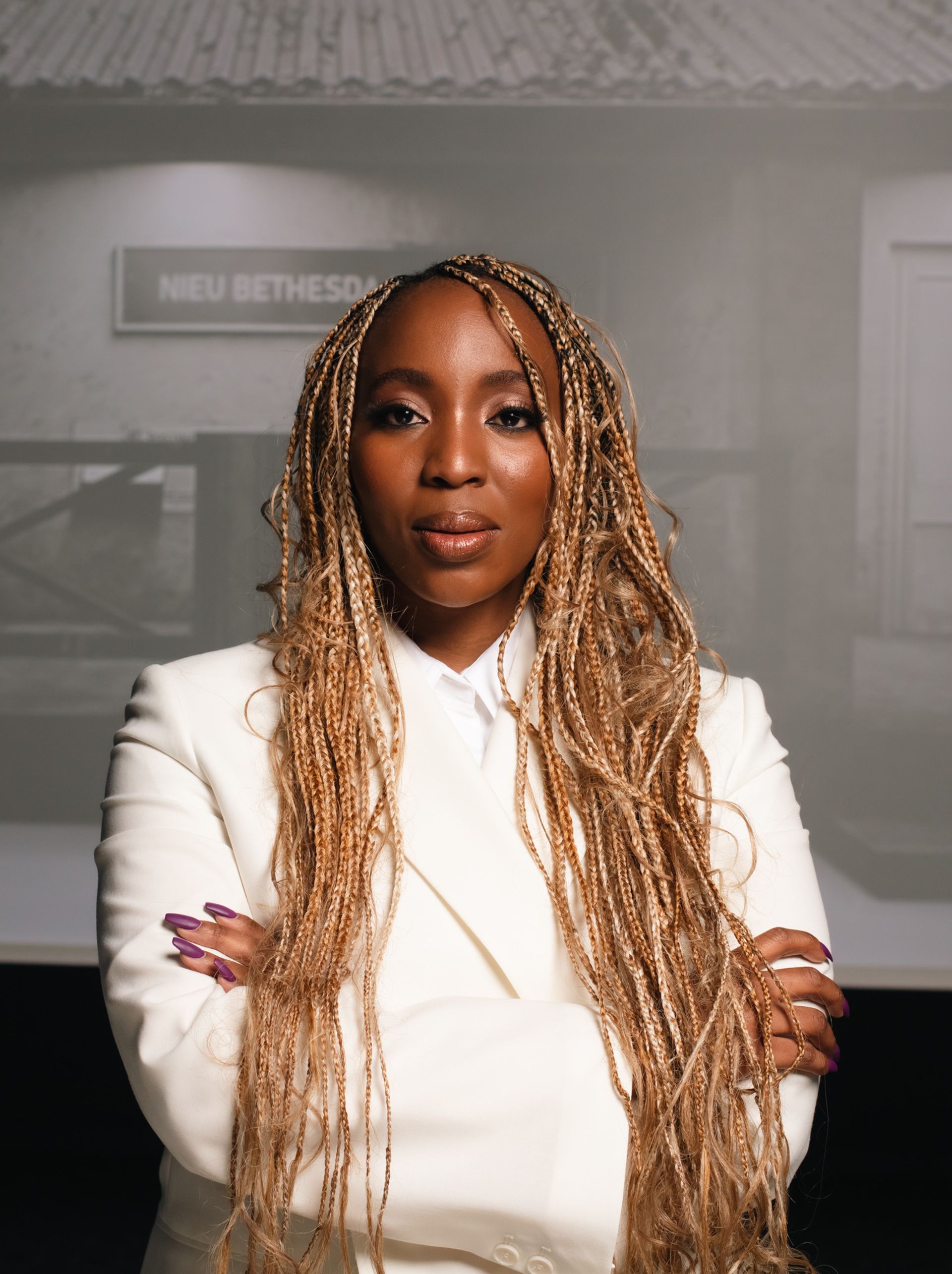South African artist wins prestigious photo prize for ‘risk-taking’ Apartheid work

Johannesburg-based artist Lebohang Kganye has been awarded the Deutsche Börse Photography Foundation Prize for 2024.
The 33-year-old South African, whose works incorporate photographic montage, texts, performance and film animation, often presented as sculptural or installation pieces, collected the £30,000 award at a prize ceremony last night at The Photographers’ Gallery in London. Her work is on show there in a group exhibition with the other shortlisted artists—Valie Export, Gauri Gill & Rajesh Vangad and Hrair Sarkissian—until 2 June, which then travels to the Deutsche Börse Photography Foundation in Frankfurt (13 June-22 September).

Portrait of Lebohang Kganye © Lebohang Kganye. Courtesy of the artist
The prize, perhaps the most prestigious in the world of art and documentary photography, rewards “artists and their projects recognised as having made the most significant contribution to international contemporary photography over the past 12 months”. Kganye was nominated for last year’s exhibition, Haufi nyana? I’ve come to take you home, shown at Foam in Amsterdam. The other shortlisted artists receive £5,000.
The title of her work in the prize exhibition is Haufi nyana?, meaning ‘too close?’ in the Sesotho language. The large-scale installation explores “notions of home, belonging, heritage and identity”, including silhouettes and life-sized cut-out figures of her family crafted from images in photo albums to consider the legacy of apartheid through her own personal history.
“This work is really based on research that I’ve been doing since the moment that my mother passed away,” Kganye said in her acceptance speech last night. “So this moment is very much about a celebration of the legacy she’s left me… my inheritance, my heritage… and also really finding my identity as a young South African woman.”
She is the third South African artist to win the prize, which this year celebrated the 20th anniversary of its collaboration between The Photographers’ Gallery—which initiated and runs the award—and the Deutsche Börse Photography Foundation (a selection of its burgeoning collection is currently on show at Somerset House as part of Photo London, on until 19 May). Mikhael Subotzky won with Patrick Waterhouse in 2015, and Adam Broomberg collected the prize alongside Oliver Chanarin in 2013.
The prize also has a strong connection with South African and a particular South African school of photography. The Market Photo Workshop in Johannesburg was founded by David Goldblatt, who was nominated for the prize in 2004. Jo Ratcliffe, shortlisted in 2022, taught there. And both Kganye and Zanele Muholi, shortlisted in 2015, were students there. Outside of the workshop, another two South Africans have been nominated also: Pieter Hugo (2012) and Roger Ballen (in 2002, when the prize was known as the Citigroup Photography Prize).
In the wake of George Floyd’s murder and ensuing Black Lives Matters protests, the prize and its organisers were criticised for the lack of winners who were artists of colour. Just three artists of colour had won the prize prior to Mohamed Bourouissa in 2020: Shirana Shahbazi 2002), Walid Raad (2007) and Luke Willis Thompson (2018). However, since then, the prize has expanded its reach with the last three editions of the prize being won by a person of colour: Cao Fei in 2021; Deana Lawson in 2022; and last year’s winner, Samuel Fosso.
Commenting on this year’s winner and runners-up, Anne-Marie Beckmann, director of the Deutsche Börse Photography Foundation (and a judge for the past 20 years), commended Kganye for her “risk-taking exploration of her family history, [opening] up important discussions about the realities and consequences of apartheid,” She continues: “There is a powerful conversation running through the work of all of the nominated artists this year. A vital conversation about displacement, hidden histories and unheard voices. The artists all question the shifting nature and parameters of photography now. Deciding the 2024 winner was a difficult decision.”
Source link





